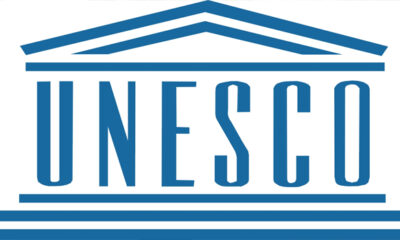Education
UNESCO trains campus radio producers on migration quality information content

Participants at the Campus Radio Producers’ Training by UNESCO
The UN Educational, Scientific and Cultural Organisation (UNESCO), says it has trained Campus Radio producers on how to produce quality studio contents to promote universal access to information on migration across the country.
This is contained in a statement issued by Mr Olushola Macaulay, National Professional Officer for Communication and Information of UNESCO Abuja Regional Office on Friday.
The training, organised by the regional office in Lagos, was also aimed at improving the narratives on migration in Africa and Europe targeted at achieving Sustainable Development Goal (SDG) 16.
According to him, SDG 16, target 10, aims at ensuring public access to information and protect fundamental freedoms in accordance with national legislation and international agreements.
The programmes were funded by the Ministry of Foreign Affairs and Development Cooperation through the Italian Agency for Development Cooperation (AICS) under Fondo Africa project.
“The engagement is to use the training to empower young women and men to make informed decisions on migration issues through better access to quality information.
“Lack of access to reliable and accurate information on migration issues will possibly lead people to make uninformed decisions.
“UNESCO Abuja and partners organised the training workshop to raise the awareness of migration issues among the youth in Nigeria and West Africa.
“It will also enhance campus radios’ capacity in developing and promoting informed content on migration among the peers and into a broader population.” he said.
Olushola explained that it was becoming increasingly important to create and raise awareness on migration issues in local context.
According to him, it will enhance people’s capacity for critical thinking and detecting true information, and develop quality content to be disseminated with creativity.
The official said that youths account for a large number of the population in Nigeria and they had the power to redefine information landscape on migration issues.
Dr Oluseyi Soremekun, the National Information Officer, United Nations Information Centre (UNIC) Nigeria, noted that migration was an important force in development and should be given priority both in developing and developed countries.
Soremekun added that issues on migration impacted the host country and the country of origin.
Dr Senayon Olaoluwa, Acting Director, Institute of African Studies, University of Ibadan, said most African migration was within the continent, while the high percentage was from the West African sub-region.
Olaoluwa, who dwelt on ‘Free Movement Protocol in West Africa: Leverage or Bait? The Many Faces and Phases of Irregular Migration in Nigeria’, referenced the 1979 Protocol on Free Movement of Persons, Residence and Establishment.
He said the protocol defined right of ECOWAS community citizens to enter, reside and establish in territory of member states.
“Free Movement Protocol in West Africa establishes a three-phased approach over 15 years for implementation of the right of entry and abolition of visas, residence and establishment.’’
Dr Sharon Omotosho, Coordinator, Women’s Research and Documentation Centre, in her presentation urged participants to dispel the erroneous belief that life was better outside the region.
Omotosho said that the general belief fueled irregular migration.
Dr Emokhare Paul, a participant from Diamond FM radio, University of Ibadan, commended UNESCO, adding that the training had redefined the perspective about migration.
Apart from developing various radio contents in groups, the participants agreed to mainstream migration issues in their productions and produce a 13-week various migration thematic episodes.
Contact: info@royalnews.com.ng



